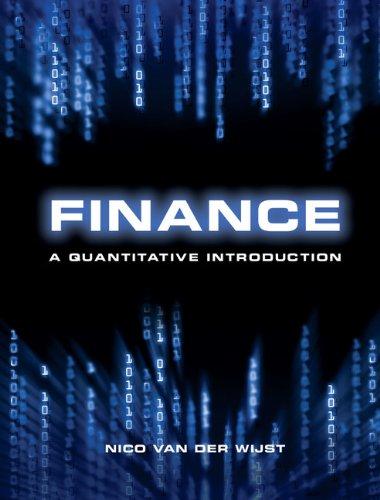
1. Based on the concepts we have discussed in class, circle the most appropriate comment for each of the following statements. (6 each) a.) A clever investor should short low yield currencies and buy high yield currencies. i. Violations of Purchasing Power Parity tend to persist, therefore, don't do it. ii. It depends on whether expected real interest rates or expected inflation prevail in the yields. iii. This is not a riskless arbitrage so any potential profit is a risk premium, not free money. iv. The spread between exchange rates and interest rates cannot easily be traded in financial markets. b.] U.S. investors are rational to largely avoid foreign securities because of fear of the unknown. i. Yes, high risk is not appropriate for most investors. ii. No, bearing imperfect information earns a generous risk premium in global stock markets. iii. Silly statement as U.S. investors hold huge amounts of foreign stocks and bonds. iv. No, they are driven by irrationality. c.] When a country's economy is in recession or depression, its currency will be undervalued. i. No, the government will need to borrow, drive up interest rates, and attract investors. ii. Yes, local consumers will continue to buy foreign currency to facilitate needed imports. iii. Maybe: declining inward capital flows may drop the currency's value below PPP. iv. No, the lower currency raises the riskless discount rate in the NPV equation. d.] China's currency value fluctuates somewhat while Hong Kong's has been pegged to the U.S. dollar since 1983. Therefore, a clever investor should sell options on the Chinese RMB and buy options on the HK$. i. Yes, selling overpriced volatility or buying underpriced volatility is a classic trading strategy. ii. Yes, this exploits the underlying instability of China's currency and economy. iii. No, we do not have enough option pricing information to decide this question. iv. No options exchanges currently trade options on China's currency. 1. Based on the concepts we have discussed in class, circle the most appropriate comment for each of the following statements. (6 each) a.) A clever investor should short low yield currencies and buy high yield currencies. i. Violations of Purchasing Power Parity tend to persist, therefore, don't do it. ii. It depends on whether expected real interest rates or expected inflation prevail in the yields. iii. This is not a riskless arbitrage so any potential profit is a risk premium, not free money. iv. The spread between exchange rates and interest rates cannot easily be traded in financial markets. b.] U.S. investors are rational to largely avoid foreign securities because of fear of the unknown. i. Yes, high risk is not appropriate for most investors. ii. No, bearing imperfect information earns a generous risk premium in global stock markets. iii. Silly statement as U.S. investors hold huge amounts of foreign stocks and bonds. iv. No, they are driven by irrationality. c.] When a country's economy is in recession or depression, its currency will be undervalued. i. No, the government will need to borrow, drive up interest rates, and attract investors. ii. Yes, local consumers will continue to buy foreign currency to facilitate needed imports. iii. Maybe: declining inward capital flows may drop the currency's value below PPP. iv. No, the lower currency raises the riskless discount rate in the NPV equation. d.] China's currency value fluctuates somewhat while Hong Kong's has been pegged to the U.S. dollar since 1983. Therefore, a clever investor should sell options on the Chinese RMB and buy options on the HK$. i. Yes, selling overpriced volatility or buying underpriced volatility is a classic trading strategy. ii. Yes, this exploits the underlying instability of China's currency and economy. iii. No, we do not have enough option pricing information to decide this question. iv. No options exchanges currently trade options on China's currency







